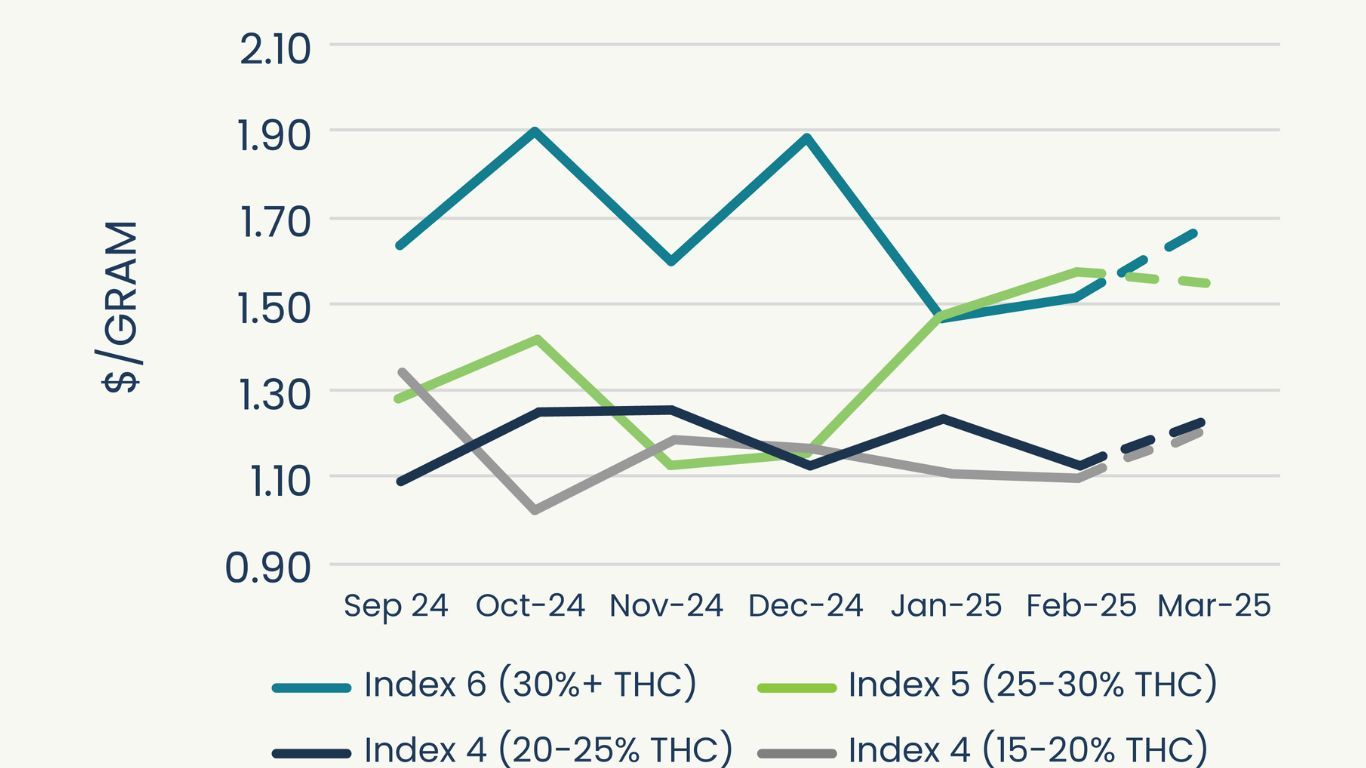
Small-scale, craft cannabis producers may choose to move back into the illicit market if the barriers to the market are not addressed, says a new report from the federal government’s expert review panel.
The panel’s review of the federal Cannabis Act included numerous recommendations to address challenges the industry is facing, including calls for changes to regulatory fees for equity-deserving groups and micro-licence holders.
From a small producer’s perspective, they do seem to understand some of the specific concerns we’re facing.
Jonathan Wilson, CEO of Crystal Cure
The report argues that the future of smaller cannabis companies is in serious question without government intervention and other regulatory changes to lessen the financial pressure these companies face.
Some of those suggestions include reducing or even eliminating the cost of applying for micro and other “equity-deserving” applicants like First Nations and other historically disadvantaged groups.
The expert panel also suggests that provinces and territories that control distribution and sales within their jurisdictions should allow small-scale producers to sell directly to consumers, such as through farmgate or mail-order sales.
Ontario, New Brunswick, and BC currently have farmgate programs. No jurisdictions allow producers to sell directly to consumers, except through such a farmgate licence in BC.
The report also calls on allowing cannabis cultivators to sell dried cannabis directly into provincial markets without a processing licence, while also noting the challenges provinces face in purchasing products from a large number of often small companies.
The panel also calls on provinces and territories to review their “mark-ups, fees, purchasing practices, and the amount of shelf space they allocate to different products and different licence holders, including those from equity-deserving groups, to improve the prospects for the many smaller-sized companies that are currently struggling.”
“Any help we receive will help us survive. Give us some kind of advantage over the larger companies.”
Gord Nichol, North 40 Cannabis
Gord Nichol, the owner of North 40 Cannabis, a micro cultivator and processor in Saskatchewan, says any help is welcome. Since micro-producers are limited to a smaller footprint and cannot enjoy the benefits of the economies of scale of larger producers, Nichol says he would like to see the proposals for lower tax rates and regulatory fees specifically for micros.
“As a micro, I would support that,” says Nichol. “Any help we receive will help us survive. Give us some kind of advantage over the larger companies.”
Nichol also supports the idea of selling products directly to consumers, something he can currently only do with authorized medical patients through his medical sales licence. There are some provincial markets he’s been trying to get his cannabis into, like British Columbia, where he says he knows there’s consumer demand, but the province isn’t interested.
“If I can get past those kinds of gates and sell directly to consumers, I think that’s probably good for the industry. I’d love to operate an online store where anybody who wants to try my product can.”
When it comes to cultivators selling directly to provinces, though, he thinks several other hurdles will make the option less than viable for most. Meeting quality assurance standards without an on-site QAP can be challenging, and provinces will not necessarily want to deal with numerous individual cultivators—something the expert panel’s report also acknowledges.
Janeen Davis, VP of sales at Joint Venture Craft Cannabis, which operates as a processor and distributor for numerous micro and craft brands, shares a similar perspective.
“I think that some cultivators certainly have the ability to package and process CPG goods to provincial distributors. But others may still struggle with compliance issues. So I think there’s varying ability among cultivators that could find success in that approach.”
The real challenge, says Davis, is not the ability of a micro cultivator to get a processing licence, something she argues is relatively straightforward, but in getting approved by a province to sell into their markets. Davis also emphasizes that while she is aware that many small cannabis companies are struggling, many are doing well even under the current federal and provincial regulations, including Joint Ventures.
Jonathan Wilson, CEO of Crystal Cure, a micro cannabis producer in New Brunswick, says he was pleased to see the report address challenges that small producers face.
“I’m just excited to see so many mentions of small producers. It’s great to see that. From a small producer’s perspective, they do seem to understand some of the specific concerns we’re facing.”
“I think that some cultivators certainly have the ability to package and process CPG goods to provincial distributors. But others may still struggle with compliance issues.”
Janeen Davis, Joint Ventures Craft Cannabis
Wilson was most excited by the recommendations of provinces to allow more options with farmgate and allowing producers to sell directly to consumers. Crystal Cure is one of a handful of licensed farmgate producers in New Brunswick, meaning they can operate a retail store at their production facility, selling directly to consumers.
He says he’s been pushing the province to expand on the farmgate model, as well as allowing them to ship cannabis from their farmgate store directly to consumers.
“(The province) has been telling us they are waiting on guidance from the federal government, so now we have that. Now we can say ‘Hey, they’re recommending this. We’ve been echoing this and this is very consistent with what we’ve been lobbying for.”
Featured image via North 40 Cannabis











